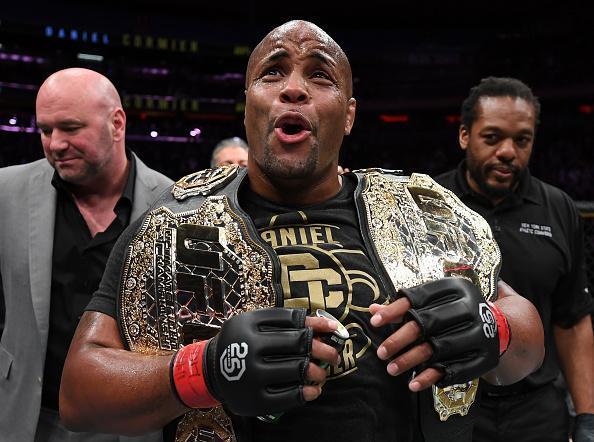Is MMA More Difficult Than Boxing? Ex-UFC Fighter Weighs In on the challenges and Trauma of Combat Sports
In⁤ the⁤ world of combat sports, the debate over which discipline reigns supreme has long sparked passionate discussions among athletes, fans, and commentators alike. Mixed Martial Arts (MMA) and boxing are two of the moast popular fighting⁤ styles,‌ each with its own unique skill sets, rules, ⁤and physical demands. Yet, the question remains: which sport is more difficult, and where does the ​true trauma‌ lie‍ for fighters? In a revealing exploration of these concerns, a⁤ former UFC fighter shares his firsthand experiences, shedding light on the stark realities of competition in both arenas. Through a comparison of the physical and psychological challenges faced by ​athletes in MMA and boxing,this article aims to dissect the complexities of each⁤ sport and uncover which may be​ more traumatic,ultimately ⁣offering​ readers a nuanced perspective on the life of a fighter.As we delve into this thought-provoking inquiry, the insights ⁣shared by the ex-fighter offer a‍ staggering glimpse into the often-overlooked sacrifices made by those who step into⁢ the ring​ or⁤ cage.
MMA vs Boxing: Analyzing the Physical and Mental Toll‚Äç of Combat Sports
In the realm of combat sports, the debate surrounding the physical and mental challenges ‚Å¢encountered in MMA versus boxing has gained traction, especially following revelations from former UFC fighters.‚Äç While ‚Äãboth sports demand immense athleticism and discipline, the requirements and repercussions differ significantly. In MMA, fighters endure a wider variety of strikes, grappling, and submissions, subjecting‚Äã them to an‚Äå extensive range of physical injuries. This‚Å¢ includes, but is not limited to, chronic trauma to the joints,‚Äå repetitive concussions, and potential long-term neurological issues. Comparatively, boxers often focus on striking and footwork, but they, too,‚Å¢ face serious threats; the most‚Å£ prominent concern is the risk of head ‚Å¢trauma from continuous punches‚Å¢ to the head, leading to a condition‚Å£ known as Chronic Traumatic Encephalopathy (CTE).
The psychological impact of ⁤both‌ sports can be just as daunting.Fighters‌ often grapple with the pressures of public perception, the anticipation of competition, and the fear of debilitating injuries, which can ⁣lead to anxiety, depression, and burnout. Former ⁤fighters have noted that the full contact nature‍ of MMA, while exhilarating, can amplify mental stress due to the ‌unpredictability of the fight—where one misstep can lead ​to a swift defeat or worse. In contrast, boxing, with its structured rounds and ⁢emphasis on technique, allows for a more ‍predictable fighting environment; however, the pressure of maintaining a perfect record or winning a title can create ⁤its own unique⁢ set of mental struggles. In essence, the toll ‌of these​ combat sports‍ is ‌profound and ⁤multifaceted, with each path presenting its own rigors and​ psychological battles.
Lessons from the Octagon: Recommendations for aspiring Fighters ‍on ⁤Managing​ Trauma and Recovery
The rigorous nature of mixed martial arts ‚Äå(MMA) presents unique challenges that extend beyond physical training. ‚Å£For fighters, the dense amalgamation of‚Äç striking and‚Äå grappling techniques can lead to various forms of trauma, both‚Äç mental and physical. Successful recovery requires tailored‚Å£ strategies, ‚Å¢such as:
- Seeking Professional‚Å¢ Support: Engage‚Äç with mental health professionals‚Å¢ specializing in sports psychology to navigate the emotional toll of competition.
- Incorporating‚Äã Rest Days: prioritize recovery by scheduling‚Äã ample rest and downtime in training regimens to promote‚Å£ healing.
- Mindfulness practices: Implement techniques such as meditation and visualization to enhance mental resilience and cope with stress.
Developing coping mechanisms is crucial, particularly when transitioning from a challenging fight or an intense training session. Fighters should consider establishing a robust support‚Äã network that includes trainers,teammates,and family members. A productive environment can greatly assist in managing the aftermath‚Å£ of a bout. practical tactics include:
| Strategy | Description |
|---|---|
| Journaling | Document thoughts ⁤and feelings to identify patterns and triggers of stress or‍ anxiety. |
| Physical Therapy | Focus on rehabilitation to‚Äã address injuries and prevent future issues. |
| Community Engagement | Participate in group ‚Äçactivities or forums to share experiences and advice with fellow‚Äå fighters. |
insights and Conclusions
As the debate over the grueling nature of mixed martial arts compared to traditional boxing​ continues​ to gain‍ traction, insights from former UFC fighter provide a unique perspective⁢ on the physical and psychological challenges inherent in‍ both sports. the journey of these athletes, often marked by intense training regimens and high-stakes competition, sheds light on the intricate dynamics of trauma and recovery in combat sports.‍ While‌ each ⁣discipline demands⁢ unrivaled commitment and skill, the findings underscore the need for greater awareness and discussion around the long-term effects these rigorous​ environments have on fighters. As the conversation evolves, it becomes increasingly clear that whether‍ in the cage or the ring, the pursuit of⁤ excellence in combat sports comes with its own set of unique challenges that can leave lasting impacts on an athlete’s life. As we‌ continue​ to explore the intricacies of MMA and boxing, one thing remains certain: the fight is far from over.








